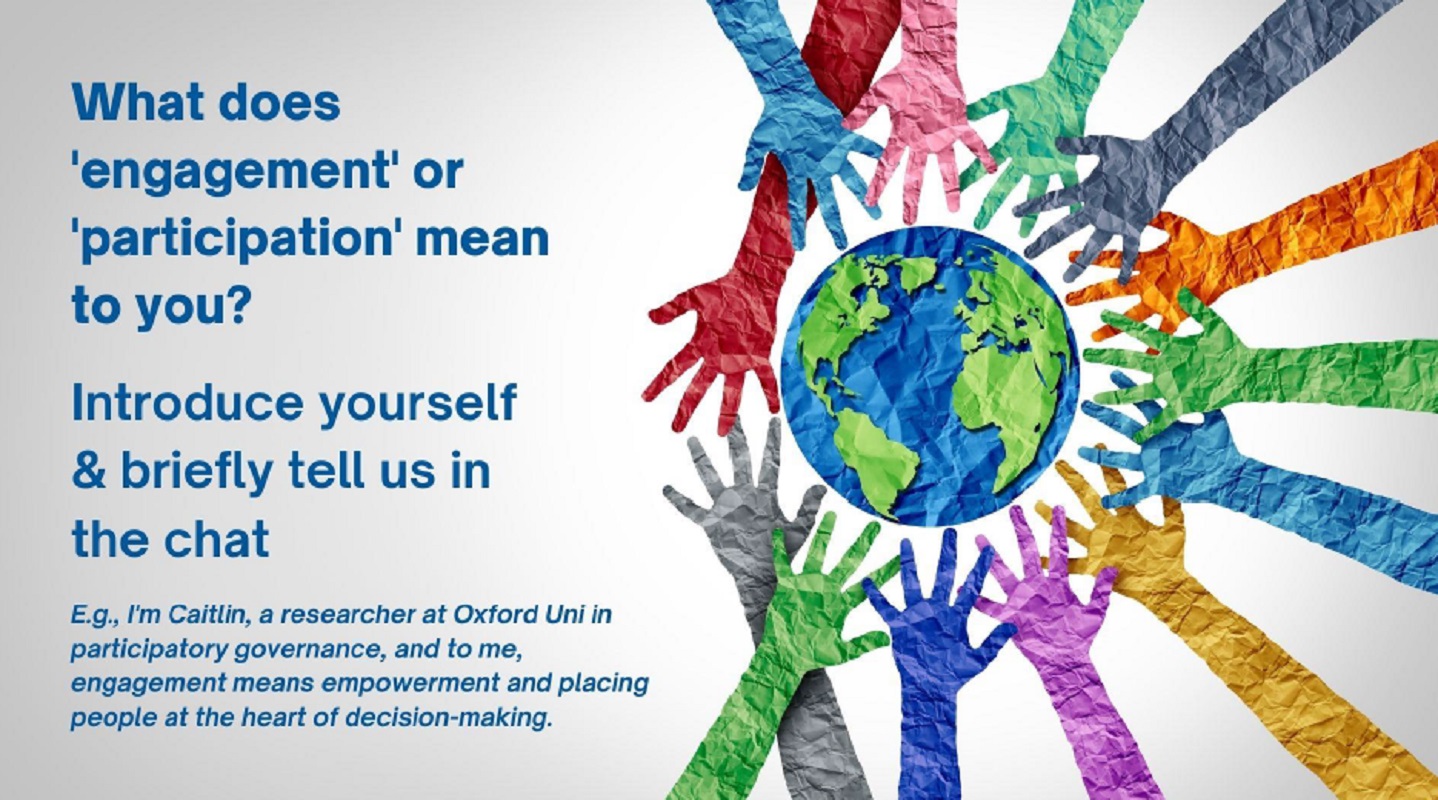DLUHC Science Seminar Series Sheds Light on how to build Trust and Inclusion for Thriving Communities

In an enlightening seminar titled “How to build standards of trust, accountability, and inclusion for sustainable places,” Leverhulme Centre for Nature Recovery and Agile Initiative researchers Dr. Caitlin Hafferty and Dr. Mark Hirons shared their insights with the Department of Levelling Up, Housing and Community (DLUHC). The seminar, part of the DLUHC 2023 Science Seminar Series, aimed to bridge the gap between academic research and real-world application in the realm of urban planning and regeneration, housing, sustainable communities, and the Levelling Up agenda.
The DLUHC Science Seminar Series, led by the Chief Scientific Advisor’s Office, seeks to incorporate scientific evidence into DLUHC’s areas of research interest and priorities. Caitlin and Mark’s presentation, which took place on the 21st July 2023, showcased the best available social science evidence on how participatory processes can lead to better quality decisions, contributing to more sustainable and equitable outcomes in planning and development.
Key takeaways from the seminar included:
- The importance of engagement: Caitlin and Mark emphasized the significance of engagement in building trust, inclusion, and integrity in decision-making processes. They presented evidence that shed light on the necessity of involving stakeholders and the general public in shaping decisions about places and communities.
- Digital tools for engagement: The researchers discussed the use of digital tools in the engagement process, offering insights into both technical and ethical considerations related to their application. Digital tools can enhance the accessibility and effectiveness of public involvement in planning and decision-making, but there are also ethical risks (like lack of digital literacy and infrastructure) which need mitigating.
- Embedding a culture of engagement: The presentation touched on the importance of creating a culture of engagement within DLUHC. Building capacity and capability to deliver best practice in engagement processes is key to ensuring that decisions align with sustainability and community needs.
This research is particularly crucial given the rapidly evolving state of digital transformation in the UK and internationally. With a plethora of digital tools and platforms at our fingertips, the way we approach planning and environmental decision-making is shifting dramatically. On a global scale, influential organizations like the OECD and the European Union are promoting digital tools as catalysts for fostering more interactive, human-centred approaches. Closer to home, the United Kingdom is making bold strides in digital transformation, positioning digital technologies as the front and centre of public service provision and engagement. These digital transformation strategies often promote technology as a ‘win-win’ for people and the planet; hailed for their capacity to streamline processes and broaden accessibility, however also bring forth a set of distinctive challenges and intricacies which must be addressed in an increasingly digital world.
The seminar not only provided valuable information to DLUHC staff but was recorded and made accessible to those working within the UK public sector. The presentation slides can also be downloaded here.
The Agile Initiative researchers are committed to further developing their research on participation in planning and environmental decision-making processes in the UK and internationally. Their work is part of the Agile Initiative Sprint on ‘Scaling Up Nature-based Solutions in the UK’ and the Leverhulme Centre for Nature Recovery.
In a world where building sustainable places and communities is more critical than ever, this seminar underscored the importance of engagement for driving standards of trust, inclusion and accountability in decision-making and public institutions.

